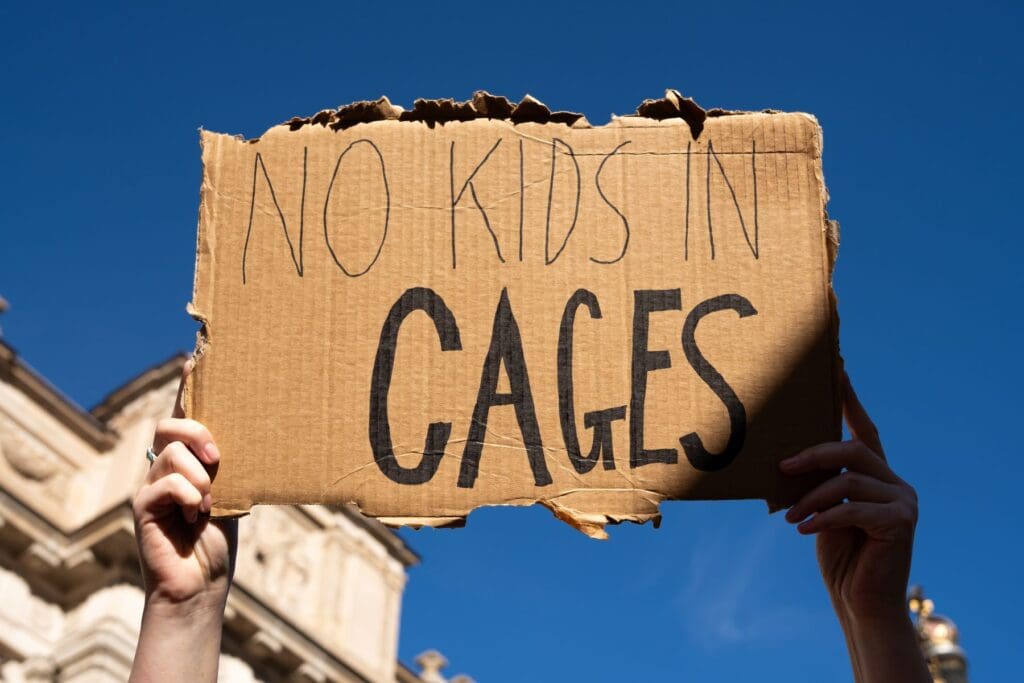Victorian Charter win on fair hearing rights for unrepresented litigants
In a recent Victorian decision, a mother and daughter, Betty and Maria Matsoukatidou, won an important Supreme Court Human Rights Charter case on the fair hearing and equality obligations owed by courts to self-represented litigants, and in particular those with learning disabilities.
The win gives Betty and Maria the right to a rehearing of their appeal against criminal charges brought by Yarra Ranges Council arising out of their failure to secure and demolish their home after an arsonist burnt it down.
Hugh de Kretser, Executive Director of the Human Rights Law Centre, which was part of the legal team that represented Betty and Maria, said it was an important decision. “The decision confirms that under the Charter, self-represented litigants must be afforded a proper opportunity to put their case and this can involve positive obligations on courts to provide advice and assistance. In particular, where the litigant has a learning disability, the court must make reasonable adjustments.”
Maria, who has a learning disability, and her mother Betty, whose first language is not English, had represented themselves at the Magistrates Court hearing of the charges and the subsequent County Court appeal proceedings. They then went to the Supreme Court to review the County Court decision to refuse their application to reinstate their appeals.
After being contacted by the Supreme Court’s Self-Represented Litigants Coordinator, the Human Rights Law Centre arranged and worked with an expert pro bono legal team of Colin Biggers & Paisley and Kylie Evans and Evelyn Tadros from the Victorian Bar to represent Maria and Betty.
The Supreme Court found that Maria and Betty’s rights to a fair hearing under the Charter were breached in the way the County Court conducted the hearing. The Supreme Court found that Maria and Betty weren’t able to participate effectively and weren’t given a fair opportunity to put their case. The Court also found that Maria’s right to equality was breached through the County Court’s failure to make reasonable adjustments to ensure that she wasn’t prevented by reason of her learning disability from effectively participating in the proceeding.
“The case confirms that courts have a responsibility to ensure that self-represented litigants properly understand the relevant procedure and legal test, particularly where they have a learning disability or where English is not their first language,” said Mr de Kretser.
The decision can be read here: http://www.austlii.edu.au/au/cases/vic/VSC/2017/61.html
Media Enquiries
Chandi Bates
Media and Communications Manager

University of Melbourne urged to drop repressive anti-protest and surveillance policies
The University of Melbourne is being urged to abandon policy changes that restrict staff and students’ right to protest and permit the widespread surveillance of people using their wifi network.
Read more
Expanded protections for marginalised groups welcomed in Allan Government’s anti-vilification laws
The Human Rights Law Centre welcomes the additional protections for marginalised groups in anti-vilification laws passed today by the Allan Government. These laws expand protections from vilification to include people from LGBTIQA+ and disability communities, and provide communities with important civil law avenues to address vilification.
Read more
Aboriginal human rights experts take Australia’s racist youth justice policies to the UN
Aboriginal leaders are calling on the United Nations to take urgent action to address Australia’s discriminatory and punitive youth justice policies
Read more


